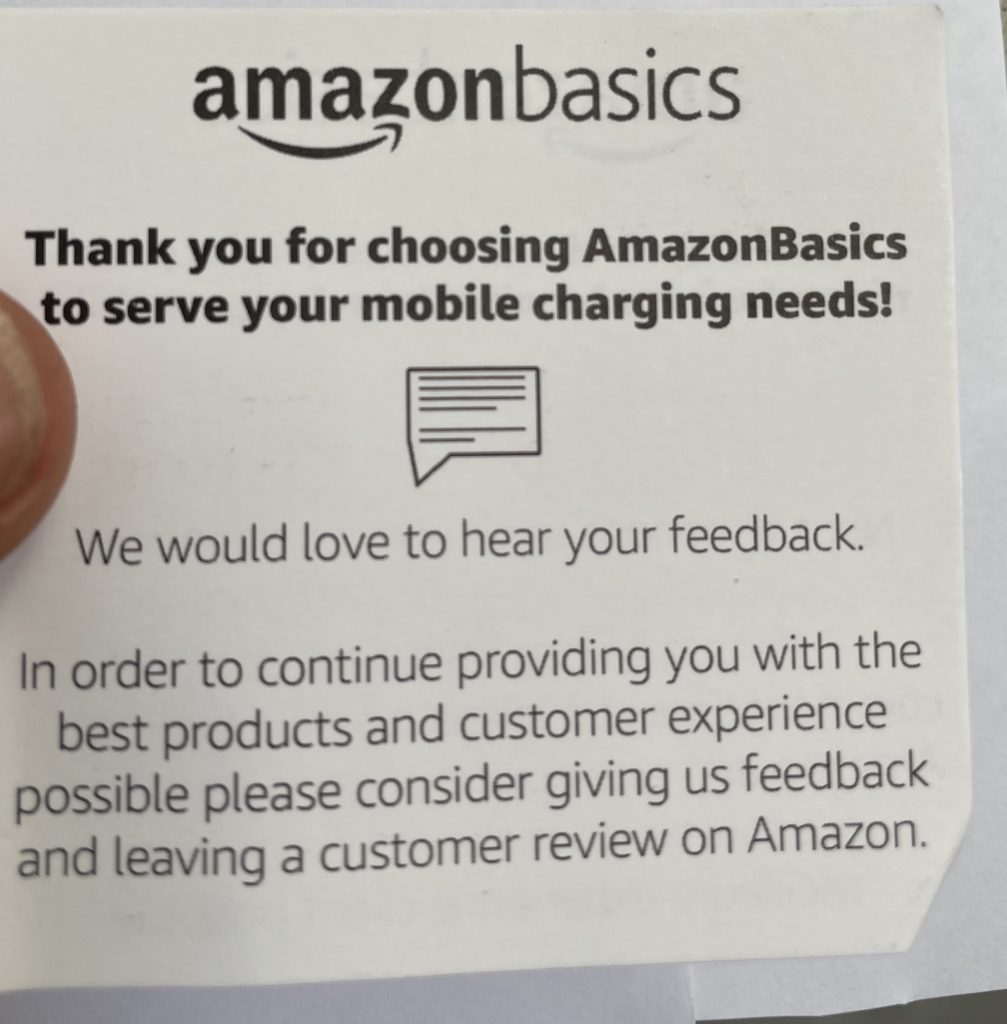Another Mass Amazon Account Suspension Sweep Could Be Coming

Amazon could be on the verge of doing a mass suspension of sellers who have been guilty of review manipulation. Inauthentic reviews threaten consumer trust and as such, it's always been something Amazon takes very seriously. However, there's another external factor that is coming into play now: involvement by government bodies, including the FTC, in putting pressure on Amazon to crack down on review fraud.
In this article, I'll look at why a mass suspension of sellers who have been guilty of review manipulation, either now or in the past, may be coming.
The FTC Is Concerned About Review Manipulation on Amazon
Amazon has always been concerned about review manipulation. If consumers question the authenticity of reviews on Amazon, it may make them lest apt to simply click the “Buy Now” button on the top result for Bluetooth wireless headphones, and *gasp*, potentially turn to other sources to buy said headphones.
But let's face it, even if many consumers are aware that not every single Amazon review is completely authentic, the convenience of Prime shipping means most consumers will buy from Amazon regardless of fake reviews or not. What does that mean? As Amazon's ecommerce monopoly grows, their incentive to police fake reviews grows less and less.
This is where the FTC comes in.
The FTC and Amazon have been a hot topic for some time now, but mostly it has been around the potentiality of Amazon having a monopoly in ecommerce (and we all remember Congress grilling the CEOs of big tech last year).
Part of the FTC's mandate is preventing such monopolies, as summarized in the FTC's vision: “A vibrant economy characterized by vigorous competition and consumer access to accurate information.” Notice the second part of that vision statement: consumer access to accurate information.
Experienced Amazon sellers like us know that most consumers don't read our meticulously crafted product descriptions and bullet points and most don't even make it past the first image or two. All they do is look at our average product rating and number of ratings and decide to buy based purely on that.
And we experienced Amazon sellers also know that in nearly any competitive product category on Amazon, the top results are almost always going to be dominated by products with an abundance of less than 100% authentic reviews (I'm looking at you, protein powders and weighted-blankets).
The FTC settled its first case against an Amazon seller in 2019 for purchasing fake reviews from a now defunct website called amazonverifiedreviews.com. The FTC settled on a $12 million judgment that was reduced to $50,000 as long as the seller paid some back-taxes owing. More damning though, part of the settlement also required the seller to reach out to Amazon and inform them that they had purchased fake reviews (which would be an awkward conversation to say the least, if the seller got past a canned response from the Indian Seller Central support team).
To date, there appears to be few other cases and/or settlements brought against sellers from the FTC, but behind closed doors, it appears the FTC is directly pressuring Amazon to take action against specific sellers.
Is There More to the Fake Reviewer Database Leak?
Earlier in spring, a database breach from a server based in China showed widespread review manipulation with more than 75,000 Amazon accounts tied to providing fake reviews and many sellers also implicated for purchasing these fake reviews.
Soon after the leak, Amazon made a large suspension swoop, which included powerhouse China-based Amazon sellers Aukey and Mpow. Many assumed Amazon suspended these sellers strictly based on the database leak, but there appears to be more to the story, thanks to the FTC.

A recent Recode article said that internal Amazon communication showed the Mpow, “was blocked across marketplace due to FTC escalation” and “we [Amazon] are advised to not entertain any appeals for the block.”
FTC involvement would make sense. Major Chinese brands have been suspended before and generally, the suspensions are short-lived with the sellers reappearing several days or weeks later. And this isn't atypical for any Amazon account suspension – generally, sellers do eventually get reinstated. This time though, Mpow and Aukey remain suspended, nearly two months after the initial suspension.
The same Recode article also said that an FTC opened an inquiry with Amazon after one FTC official purchased a lamp off Amazon with an insert that offered a $15 gift card in exchange for a 5-star review (examining their own Prime purchases is apparently the FTC's sophisticated strategy for identifying their defendants).
The inquiry asked Amazon for “specifics on what actions Amazon would take against the brands and sellers in question.” Further, Amazon's own lawyers requested an internal inquiry asking “why we’re not catching customer reviews that talk about gift cards” – (however, note the verbiage here. The inquiry asks about catching reviews talking about gift cards, i.e., blocking these reviews, not necessarily doing anything about preventing the insert practice in the first place).
So what does this all mean for sellers?
Review Inserts Could Finally Be Scrutinized
The most likely immediate impact to sellers is review inserts will finally be scrutinized by Amazon. Most sellers of any size are using insert cards to some degree, either to simply collect customer information, to solicit reviews, or to compensate for reviews. The latter has been a long-standing frustration of sellers not compensating for reviews, and this issue is likely to finally get some attention from Amazon.
Review Compensation Inserts Are Dangerous
Amazon has been asked directly from the FTC in regards to sellers using inserts to solicit fake reviews (the FTC calls these bills for shrills). Amazon has always responded very harshly when sellers compensate buyers for leaving reviews. However, the FTC inquiry will likely result in even more scrutiny from Amazon. What could that mean?
Here's some sheer speculation of what that could mean:
- Random audits of items for inserts offering compensation for reviews
- Further scrutiny of irregular review patterns potentially triggering an item audit
The practice of compensating for reviews through inserts is likely to receive a lot more scrutiny from Amazon. The challenge for Amazon is that policing inserts is very difficult. It will ultimately come down to Amazon physically opening items and examining them for review inserts. With millions of SKUs, Amazon realistically will not be auditing every single SKU any time soon (especially not in a COVID world where they have severe capacity issues).
A more realistic approach would be that they will look at irregular review patterns and randomly audit items that raise certain red flags.
More consequentially though, your review compensation inserts may not just have ramifications for your Amazon account – they could actually bring the ire of the FTC. What's worse than being suspended by Amazon? Getting sued by the FTC and potentially even facing jail time.
Those of us who are sellers all understand that review inserts are often a necessity, depending on what product category you plan to sell on Amazon. You're Lance Armstrong cheating against a bunch of other cheaters and if you don't cheat, you lose.
I get it, but you have to at least be aware of the potential consequences. Review inserts aren't just black hat tactics. They're potentially illegal tactics that have a record now of landing people in legal trouble. If it were me, I wouldn't think of printing another review insert in a million years.
Review Inserts That Don't Provide Compensation for Reviews Are OK
Let's be clear as well – having an insert card encouraging a review is very different from an insert card compensating for reviews.
Encouraging reviews is totally fine. Amazon does it in their own products, and it's fine if you do it too.

If you're using review inserts, you should essentially follow Amazon's internal messaging policy when it comes to requesting a review, i.e., don't ask for 5-star reviews, don't use if/then” messaging (e.g., if you're happy, leave us a 5-star review, if you're not happy, contact us).
What About Warranty Card Inserts?
Along with review inserts, another popular insert is the warranty card insert. These inserts ask customers to go to your website and sign up for your newsletter.
Assuming you're just trying to get their contact info and NOT soliciting them for a paid review, there's nothing wrong with warranty insert cards from an FTC standpoint, and from an Amazon standpoint, in my opinion, you're not going to face any scrutiny. Yes, Amazon probably doesn't like you “stealing” their customers but there's a whole host of reasons why Amazon can probably never do anything about this, not the least of which is that this practice has been so widely engrained among brands, big or small.
What About Messenger Campaigns and Autoresponders Compensating for Reviews?
Insert cards, of course, aren't the only way that sellers compensate for reviews. Messenger campaigns, email autoresponders, and text messaging campaigns are other ways that sellers compensate for reviews. Just like review compensation inserts, you should probably stop doing these right away.
When Could a Suspension Sweep Occur?
Will Amazon do a mass suspension of sellers any time soon? It's hard to say as Amazon is entirely unpredictable when it comes to cracking down on behavior. However, when Amazon does crack down on something, they follow a pretty predictable pattern:
- Amazon gathers evidence on a wide number of sellers and suspends them en masse at one particular time.
- These suspension sweeps often occur during the fall.
We know Amazon works much like the FBI infiltrating a large crime syndicate when it comes to account suspension sweeps. They gather evidence on a large number of sellers and then do one sudden raid as opposed to banning sellers here and there.
Also, for whatever reason, Amazon has a history of making broad account suspension sweeps during the fall (such as the related account suspension sweep last year). So if Amazon is going to get tough on sellers compensating for reviews then you're probably not going to hear much of it for a few months—until you do.
Conclusion
Explicitly compensating customers for reviews has always been a bad idea. It's an even worse idea now that the FTC is giving more attention to Amazon in this regard.
For better or worse, U.S. based sellers are going to be the most impacted by this. The FTC will have little recourse against, for example, a China-based seller and overseas sellers operating multiple Amazon accounts is a well-known secret (to guard against a single accounting being shut down).
At the end of the day, nothing may come of any of this. But if and when it does, expect it to occur suddenly and likely in the fall.





